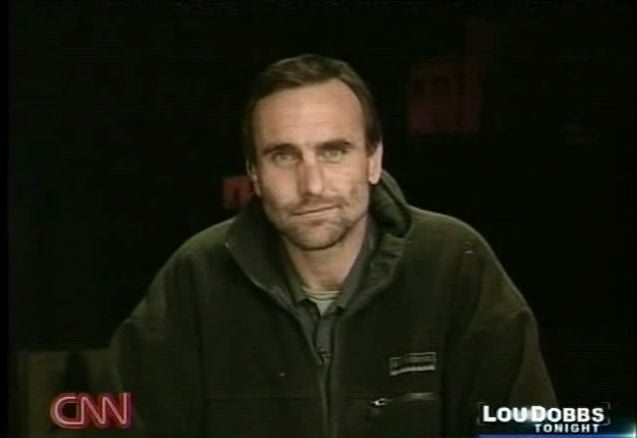LDT: "...just turning that screw."

Click photo to play
Length: 4:31
KITTY PILGRIM: Well, a deadly cycle of violence continues in Iraq today. Violent rampages in reaction to yesterday's slaughter of over 200 Shiites in the Sadr City section of Baghdad.
Michael Ware reports from the Iraqi capital tonight.
And Michael, the Iraqi government and the U.S. military in Baghdad keep saying this is not a civil war. What are you seeing?
MICHAEL WARE, CNN CORRESPONDENT: Well, firstly, let me say, perhaps it's easier to deny that this is a civil war, when essentially you live in the most heavily fortified place in the country within the Green Zone, which is true of both the prime minister, the national security adviser for Iraq and, of course, the top U.S. military commanders. However, for the people living on the streets, for Iraqis in their homes, if this is not civil war, or a form of it, then they do not want to see what one really looks like.
This is what we're talking about. We're talking about Sunni neighborhoods shelling Shia neighborhoods, and Shia neighborhoods shelling back.
We're having Sunni communities dig fighting positions to protect their streets. We're seeing Sunni extremists plunging car bombs into heavily-populated Shia marketplaces. We're seeing institutionalized Shia death squads in legitimate police and national police commando uniforms going in, systematically, to Sunni homes in the middle of the night and dragging them out, never to be seen again.
I mean, if this is not civil war -- where there is, on average, 40 to 50 tortured, mutilated, executed bodies showing up on the capital streets each morning, where we have thousands of unaccounted for dead bodies mounting up every month, and where the list of those who have simply disappeared for the sake of the fact that they have the wrong name, a name that is either Sunni or Shia, so much so that we have people getting dual identity cards, where parents cannot send their children to school because they have to cross a sectarian line -- then, goodness me, I don't want to see what a civil war looks like either if this isn't one.
PILGRIM: That is the starkest description I have yet heard, Michael.
The political overlays are deteriorating rapidly. We have Muqtada al-Sadr threatening to boycott the meeting, boycott the government of al-Maliki if he meets with President Bush.
What do you -- how do you assess the political situation right now?
WARE: Well, you have to look at Muqtada's move here politically as a very, very savvy twisting of the knife. I mean, he lays claim to Prime Minister Maliki just as much, if not more so, than the U.S. military.
Maliki has no popular base. He lacks the currency of political power in this country, which is an armed militia. So he's had to beg and borrow for political capital.
He found it in the U.S. military, desperate to put any kind of reasonable face on this apparition that they call the Iraqi government. And meanwhile, in real political terms, he's had to draw on Muqtada's militia and its political faction to actually put him into place.
So this is a man in a terrible predicament, who is unable to deliver. And yet, we have Muqtada in this time of crisis just turning that screw.
He has threatened to withdraw -- his people have threatened to withdraw participation in the parliament and the government if he meets with what they call the criminal Bush. Nonetheless, he is so acute, his political advisers and Muqtada himself. This was a statement made by his leading parliamentarian. It didn't come from his mouth himself. So he can use this as very convenient leverage this week in the leadup to the Maliki-Bush meeting, and at the last minute, he can pull away from it. And nonetheless, he still wins.
PILGRIM: That's desperately deteriorating in your description, and it seems in reality, too.
Thanks very much. Michael Ware.
WARE: Thank you, Kitty.
